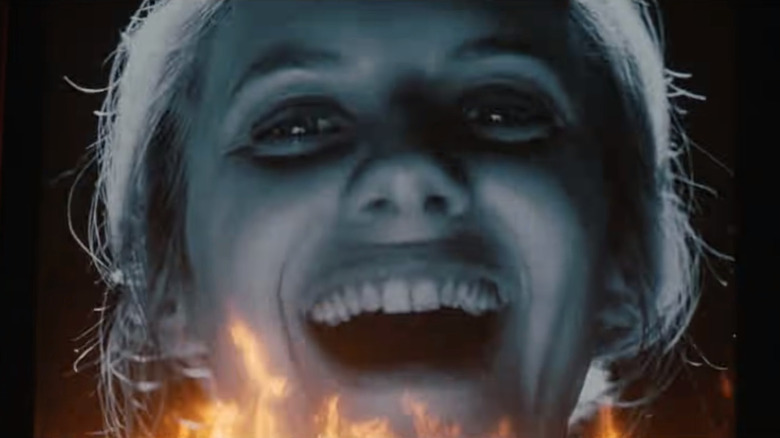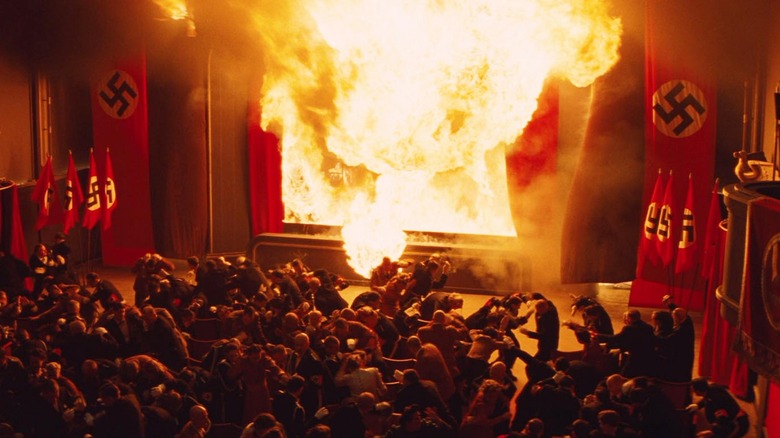Filming Inglourious Basterds' Fiery Climax Was A Scary Experience For Quentin Tarantino
As far as exciting climaxes go, you can't get much better than the ending to Quentin Tarantino's "Inglourious Basterds." Although the movie wasn't aiming for accuracy and realism, not many audience members expected him to fully break from the history books in the final act. As the movie barreled forward, both Shosanna's (Mélanie Laurent) and the titular Basterds' converging plots to assassinate Hitler faced more and more obstacles, and it seemed like everything was falling apart.
Luckily, Tarantino wasn't interested in dramatizing history: He was interested in vengeance. Shosanna gets to posthumously deliver her triumphant message to the Nazis in her theater, telling them they're all about to be killed by a Jew. The room goes up in flames, and then the remaining two Basterds swoop in to kill Hitler and the rest with machine guns. Then a bomb goes off and the whole theater is destroyed. It was here that Tarantino taught us a valuable storytelling lesson: If you're going to completely ignore the history books, you have to do it with style.
Speaking to Filmmaker Magazine in 2010, Tarantino explained how things felt as he went about filming that final sequence: "Well as the filmmaking was concerned there was the excitement and scariness of doing the climax, because I don't do storyboards or any of that stuff. We just had to commit to doing it and piece it together."
Not a fan of fire either
"It was also weird going into this big fire sequence because I don't really like fire sequences," Tarantino said." I mean, you know, other than Mauritz Stiller's Greta Garbo movie, 'Gösta Berling,' [laughs] which has a great fire sequence at the end ... I think fire sequences are kind of boring."
Tarantino's characters die in lots of gruesome, over-the-top ways, but rarely do they go out by being burnt alive. From a sheer catharsis point of view, watching the villain get machine-gunned to death is way more satisfying, which is probably part of why Hitler gets spared from the flames.
And not to undercut Shosanna's contribution to Hitler's death, but it does sort of feel like the fire was the least important part of what happened here. The scariest part for the Nazis in the audience was the realization that the exits were barred. Then the machine guns and the explosion killed most of them before the fire could. The fire was less important as a method for vengeance and more as a way to help the movie establish a claustrophobic tone. As Tarantino put it:
"My whole thing was like, 'Look, here's what we're trying to do. An audience in a movie theater is going to be watching an audience in a movie theater in a fire. [laughs] This should be as traumatic as it should be to watch a plane-crash movie on an airplane.'"
In the end, we think Tarantino succeeded. Heck, a fellow /Film writer even argues that "Inglourious Basterds" is his best film yet.

